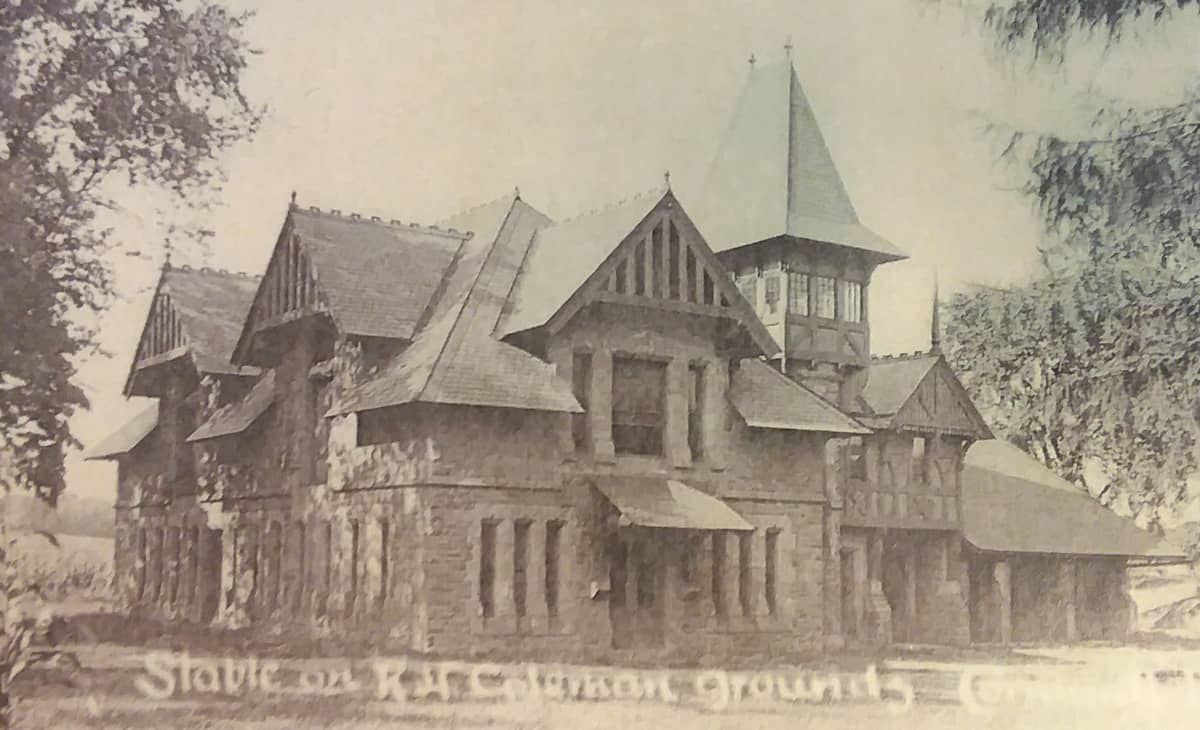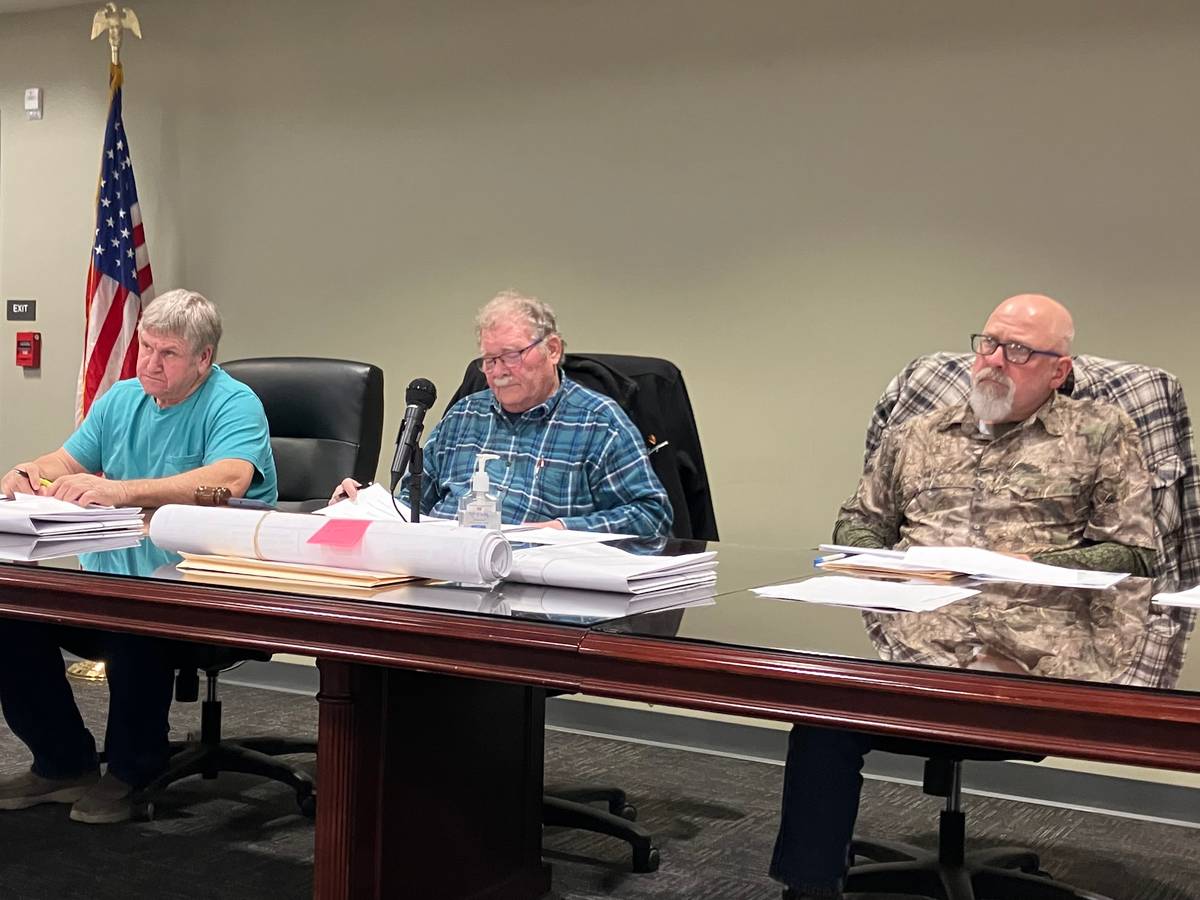Cornwall Borough resident Bruce Chadbourne moved to Cornwall Manor a few years ago after his retirement, drawn by the history of the mine and the Cornwall Iron Furnace. He has taken to writing a few historical articles, which he’s kindly shared with LebTown for our readers to enjoy in a semi-regular series titled, “Who knew?” We hope you enjoy.
Day 2 – Wednesday
Robert H. Coleman invited Agent Francis B. Thomas into his parlor, where his secretary Capt. B.F. Hean was waiting. As they sat he described the need for Pinkerton’s services: There was ongoing trouble in his stable, ranging from cruelty to animals, fighting among the men, and neglect of work. Coleman believed the best course was an undercover assignment for Thomas to identify the person causing the trouble so he could then deal appropriately and fairly with the problem.

Coleman, age 32, had grown significantly in stature in a few short years. Born and raised in Savannah, Georgia, he had inherited the vast Coleman fortune at age 9, having spent his early years in a Connecticut prep school. At age 5 he lost his father, and his widowed mother held tight reins on him, constantly and lovingly criticizing his spelling and chastising his mischievous school-boy behavior.
He graduated from Trinity College in 1877 next to last in his class academically but first in popularity, given his generous parties, dances, sports and musical pursuits. His trustee Samuel Small of York, Pennsylvania, had turned over responsibility to him for operation of the mine, furnaces, farms and other businesses by age 22. His trusted adviser Artemas Wilhelm guided his hand as he transformed the family wealth into a sizable empire, and he became arguably the key citizen of Lebanon with his great philanthropy and business leadership. Coleman had outgrown Wilhelm’s fatherly guidance, terminating his employment in 1885.

It had also been eight years since the heartbreaking loss of his first wife to illness. Matured by these circumstances he had since remarried to childhood friend Edith Johnstone, whose guardian was Coleman’s own mother Susan Ellen Coleman. Coleman now had young children of his own.
After their interview, Capt. Hean took Thomas down to the stable, a quarter mile from the mansion. There Thomas was introduced as a new employee to Mr. Morgan, the stable boss, who assigned him a position as hostler (horse tender) in the stable and ordered him to report to work the following day at 5 a.m. He was assigned to board with one of Coleman’s clerks whose house was nearest to the stable.
Thomas returned to Lebanon midday by train, had dinner at the hotel and walked about town. He returned to Cornwall on the 5 p.m. train and proceeded to the boarding house, but was already deciding that on following nights he expected to sleep in the stable as there was a nicely furnished room he could have to himself.
Day 3 – Thursday
Thomas reported to Morgan at the stable where he was put to work with the other stable hands. They worked until noon, stopped for dinner and continued in the afternoon until 5 p.m. Thomas interviewed one of the men named Christ, who spoke admirably of Morgan but noted that he spent little time around the stable.
Unprompted, Christ quickly identified two others, Fornwalt and Schult, as troublemakers. Having worked there over eight years (the stable was less than 10 years old), and more than the rest, Fornwalt felt he should be boss and acted that way when Morgan was not around. He would try to foist his work onto the other men, leading to fights, with the work left undone.
After the evening meal Thomas walked the grounds and met Myers the gardener, who warned him to do his work perfectly if he wished not to be discharged; he also warned of two troublemakers, Fornwalt and Schult, who tried to run things. Asked about Morgan, Myers considered “the Englishman” a good boss and a first-class man.
At that point Myers was called off to the greenhouse and Thomas went to the stable to help put away some horses that had just come in. He retired to his room at 10 p.m. As he wrote the daily report to his supervisor he was surprised how easily this assignment seemed to be going. (Author’s Note: Much of his words and writing style are repeated exactly in this account.)
Day 4 – Friday
Thomas went to work again at 5 a.m. to clean his assigned horses, then stopped for breakfast and worked until the noon meal. In the afternoon Mr. Coleman had ordered the four-in-hand (aka “stagecoach”) and two double teams to Mount Gretna, as there was a National Guard encampment in progress. All of the men except Thomas went along to care for the horses, returning at 7:30 p.m.

Read More: When Robert Coleman’s two-foot railway snaked through the hills of Mount Gretna
The late arrival still required the cleaning of the horses and harnesses. After Morgan gave the orders and left, trouble began immediately. Fornwalt picked on Christ on how he was cleaning the harnesses, who simply reminded Fornwalt he wasn’t the boss and that he was doing the work correctly. Another man, Benner, defended Christ’s work and told Fornwalt to leave him alone.
When the work finished at 9 p.m. and the men went home, Thomas asked Benner’s opinion of Fornwalt. “Don’t mind him, he is decent enough, but tends to boss others and wants his own way.” Further, “Morgan is a good-hearted Englishman – anybody can get along with him.”
Thomas noted in his daily report that it was a busy week around the stable and with Morgan being away in Mount Gretna so much he did not yet have a solid opinion of Morgan. “But today being the last of the encampment he will be around the stable more.” He also noted that he has not seen the secretary since their first meeting, but he hoped to meet tomorrow to gain his views of the men and the workings of the stable. He also planned to go to the “City” on Sunday with two of the men.
Read More: Upcoming dedication of Soldiers Field to recognize Mt. Gretna’s military past
Day 5 – Saturday
Thomas had the luxury of an extra hour of sleep, then enjoyed breakfast before going to the stable to work. Otherwise, the daily routine seemed the same as any other until an incident of animal cruelty erupted. Fornwalt was cleaning a horse, which pawed the floor and lightly bumped Fornwalt’s foot. He responded by kicking the horse on the shins and beating him with a curry comb. In only a few days this was not the first time Thomas had seen Fornwalt kicking a horse.
Later, when a horse got loose and ran out into the field, Fornwalt gave chase on another horse for about 15 minutes before catching it. One of the other men, Foster Yake, said to Thomas, “you watch, when he catches him he will knock the legs from under him.”
Thomas asked, “Does he often beat the stock?”
“Yes, when they get him mad,” Yake replied.
However this time Fornwalt simply brought the horse back without laying a hand or foot on it.
That evening Thomas met with Capt. Hean in the office. Hean had limited knowledge of the men in the stable but knew of the two who made trouble. “Mr. Coleman does not want to discharge either until he’s satisfied they are the guilty ones. Schult makes a great deal of trouble by skulking out of work; he says he’s going up to the house, but instead he goes and lays off somewhere and either goes to sleep or goes home. The other men are always grumbling about it.”
Day 6 – Sunday
The day started at work like any other, until at 10 a.m. he was ordered to accompany Morgan to Lebanon to take care of the teams that took Mr. Coleman and his guests to church. Thomas took the opportunity to praise the livestock and the management of the stable.

Morgan replied by saying the stable would run better if one man in particular, Willie Fornwalt, would take care of his own work. Morgan sensed the men were continually running him down behind his back even though to his face they were as nice as could be. He thought Fornwalt disliked him because he was an Englishman. Apparently Fornwalt complained of Morgan to outsiders and even to Mr. Coleman himself.
Morgan’s method of dealing with Fornwalt has been to go easy with him but without much improvement. Morgan warned Thomas to be careful, as Fornwalt could likely complain to Mr. Coleman and get him discharged. “Fornwalt feels he deserves to be boss but is frustrated that Mr. Coleman has a foreigner managing his stable,” said Morgan.
Fornwalt had complained to Mr. Coleman that Morgan was ill-treating the men, and “there was no living with him,” however no one else except Schult supported the complaint.
Morgan added, “Schult causes trouble by sneaking out of work and blaming other men for his misdeeds.”
They returned to the stable at 1 p.m., had dinner, and then were done for the rest of the day. In the evening he got into conversation with Fornwalt and engaged in running Morgan down to see Forwalt’s reaction, who readily agreed. He said, “you can probably get along with him all right, but I cannot stomach a two-faced lime-juicer, and that is what Morgan is. I can’t live with him and not much longer. If Morgan gets a chance, he’ll drive me out but I’m not giving him that chance. We’ve fought before but I’m not letting him ride over me. The others are soft but Morgan knows I’m not taking anything from him.”
Thomas wasn’t entirely sure how to read Willie Fornwalt’s intentions but noted the exchange in his daily report.
Questions about this story? Suggestions for a future LebTown article? Reach our newsroom using this contact form and we’ll do our best to get back to you.

Keep local news strong.
Cancel anytime.
Monthly Subscription
🌟 Annual Subscription
- Still no paywall!
- Fewer ads
- Exclusive events and emails
- All monthly benefits
- Most popular option
- Make a bigger impact
Already a member? Log in here to hide these messages
While other local news outlets are shrinking, LebTown is growing. Help us continue expanding our coverage of Lebanon County with a monthly or annual membership, or support our work with a one-time contribution. Every dollar goes directly toward local reporting. Cancel anytime.























